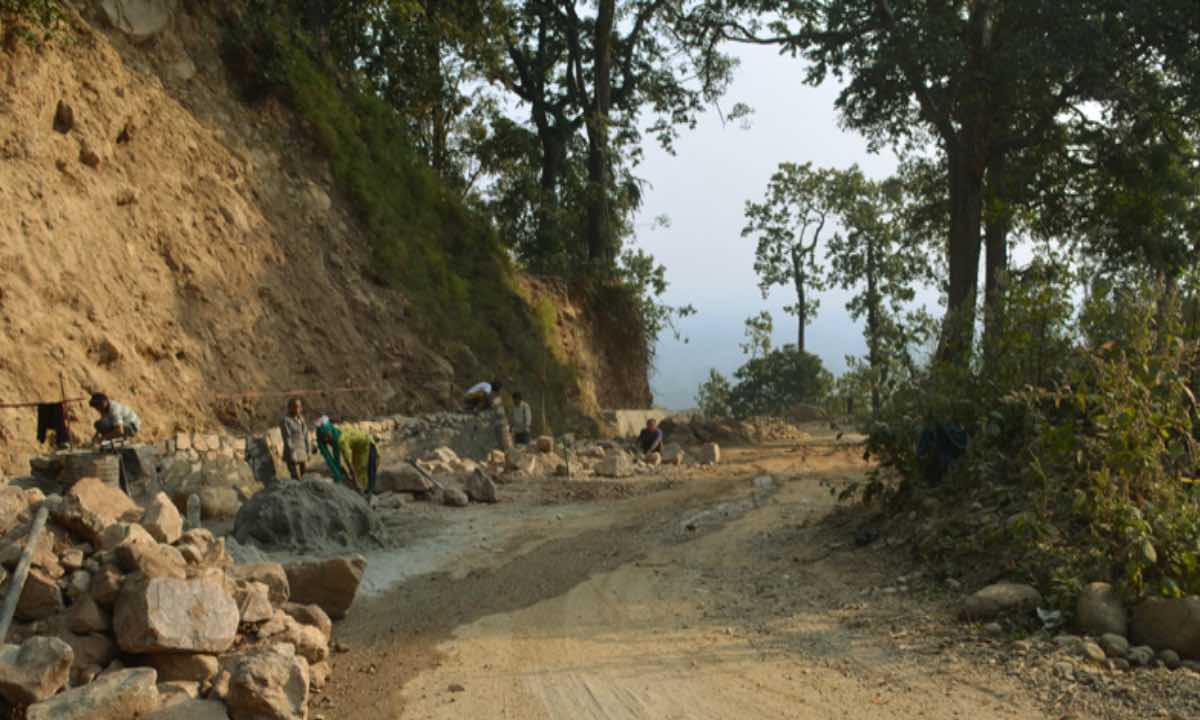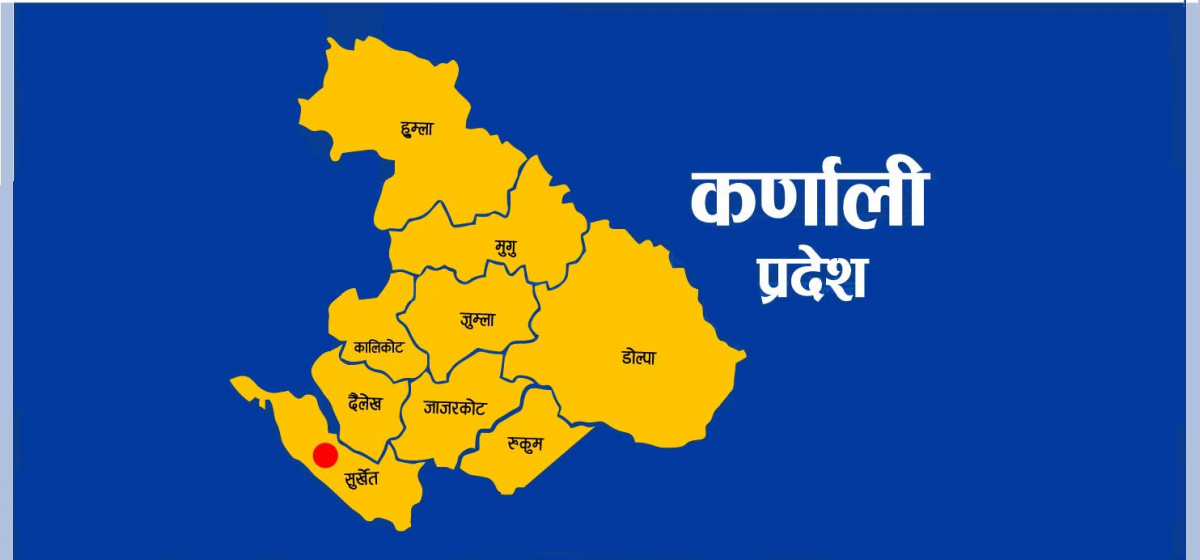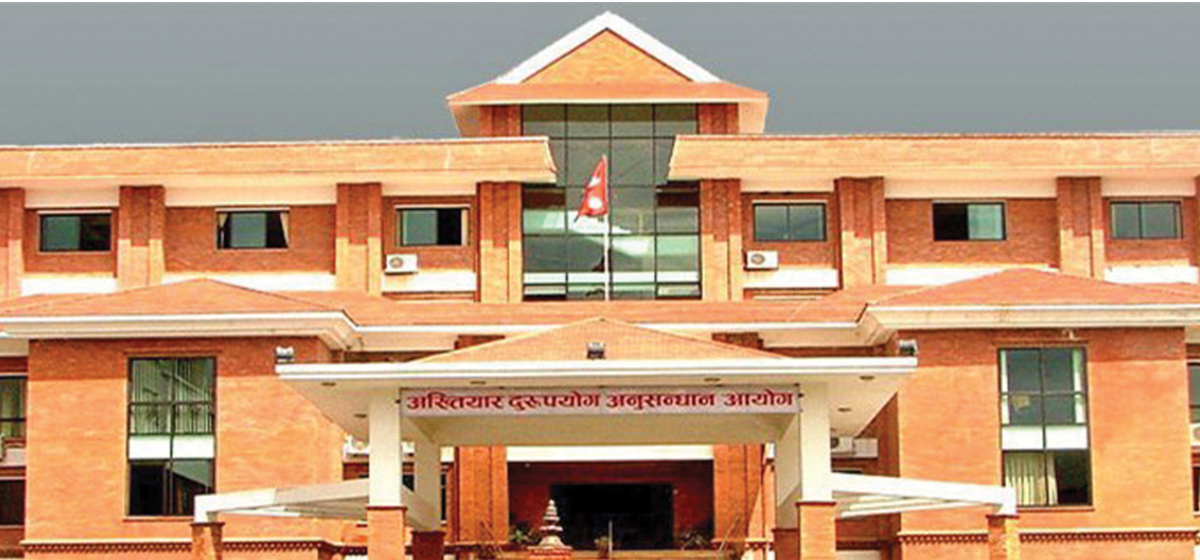
OR
More than 90% of air pollution deaths occur in poorer countries
Published On: May 2, 2018 11:19 AM NPT By: Agencies

Air pollution is involved in the deaths of around seven million people every year, with the vast majority of fatalities taking place in poorer countries.
The latest figures released by the World Health Organisation(WHO) show that nine out of 10 people are breathing air containing dangerous levels of pollutants.
These results largely echo those released in another global air pollution report in April, and experts have once again pointed to the particular burden falling on the world’s most vulnerable people.
“Air pollution threatens us all, but the poorest and most marginalised people bear the brunt of the burden,” said Dr Tedros Adhanom Ghebreyesus, director-general of WHO.
The new figures come as reports emerge concerning residents of Mongolia’s capital, Ulaanbaatar, drinking “oxygen cocktails” in an effort to ward off the harmful effects of air pollution.
Ranked by Unicef as the most polluted capital city in the world, Ulaanbaatar is one of the many Asian and African cities highlighted as particularly susceptible to the toxic effects of air pollution by WHO.
According to Dr Maria Neira, who leads public health efforts at WHO, many of the world’s megacities – such as Beijing, Delhi and Jakarta – exceed guideline levels for air quality by more than five times.
However, since 2016 – the year the new figures were calculated for – more than 1000 new cities have been added to WHO’s air pollution database, suggesting more and more countries are taking an active interest in monitoring and controlling pollution levels.
The database now stands at over 4300 cities, making it the most comprehensive of its kind in the world.
There has also been an increase in air pollution monitoring from low- and middle-income countries in recent years – where the figures suggest more than 90 per cent of air pollution deaths are occurring.
“Political leaders at all levels of government, including city mayors, are now starting to pay attention and take action,” adds Dr Tedros.
“The good news is that we are seeing more and more governments increasing commitments to monitor and reduce air pollution as well as more global action from the health sector and other sectors like transport, housing and energy.”
WHO’s measures of air pollution focus specifically on concentrations of fine particulate matter, which are linked with diseases including stroke, heart disease and lung cancer.
“Imagine those pollutants getting very deep into your lungs and cardiovascular system and causing the terrible figure today, which is 7 million premature deaths every year,” said Dr Neira.
While generally speaking air pollution is not the primary cause of someone’s death, experts agree that it certainly contributes to diseases and shortens lives.
“There is no doubt that air pollution represents today not only the biggest environmental risk to our health, but I would also clearly say this is a major challenge for public health at the moment – probably one of the biggest ones we are contemplating,” said Dr Neira.
Besides so-called ambient or outdoor air pollution, the new figures emphasised the problem of household air pollution from cooking with highly polluting fuels and stoves.
“What is very important with air pollution is that it comes from multiple sources, so it is crucial to know where the air pollution comes from,” said Dr Sophie Gumy, technical officer in WHO’s department of public health, environmental and social determinants of health.
“You have to tackle multiple sources – this is very important.”
It is estimated that around three billion people still do not have access to cleaner fuels and technologies to use in their homes, resulting in a pollution burden that falls primarily on women and children.
WHO highlighted the need to clean up household air pollution in the developing world, as well as wider efforts to implementcleaner transport and energy systems.
In the UK, the conversation around air pollution has mainly focused on nitrogen dioxide – a toxic gas emitted primarily by diesel vehicles that the government has repeatedly failed to meet legal limits for.
However, the new WHO data reveal the UK is also threatened by particulate matter, with more than half of the country’s towns and cities measured suffering from levels above recommended limits.
In light of recent legal action against the government, environmentalists have taken the new WHO figures as another signal that ministers need to act to tackle pollution.
“These new statistics show a worrying level of this dangerous air pollution across the country. People shouldn’t have to breathe air on a daily basis which the WHO deems unhealthy,” said James Thornton, CEO of environmental lawyers ClientEarth.
“A new Clean Air Act would protect our right to breathe clean air and drive greater ambition to meet safer WHO guideline levels.
“Ministers should commit to this now. Without it, many people across the UK will continue to pay with their health.”
However Professor Anthony Frew, a respiratory medicine specialist at Royal Sussex County Hospital, noted that the UK population is largely spared the worst health effects of air pollution.
At the same time, he noted the developing world is bearing the brunt of air pollution in part due to consumer demand from wealthier nations.
“This report is a timely reminder that we in the West need to remember that we are lucky to live where we do, but our prosperity is built in part on polluting industries elsewhere in the world which impact on other people’s health."
You May Like This

Air pollution causing more deaths than road accidents
KATHMANDU, Oct 1: While road accidents continue to cause high fatalities in the country, little has been said and done about... Read More...

Children exposed to air pollution in the womb are 61% more likely to have high blood pressure
Unborn babies exposed to high levels of harmful air pollution in the womb are nearly two thirds more likely to... Read More...

Infographics: Best and worst countries for air pollution
Best and worst countries for air pollution ... Read More...



Just In
- Daiji-Jogbudha road construction at snail’s pace
- Govt fails to adopt podway technology despite its potential in Nepal
- Jhulaghat border crossing in Baitadi to remain closed from this evening
- Universities will be free from partisan interests: Education Minister
- CIAA files cases against five, including ex-chief of Social Development Office Dolpa
- Kathmandu witnesses surge of 2,000 new commercial bank branches in six years
- Crops and livestock special production zone scheme implemented in 10 districts of Karnali
- Rising food prices cause business slowdown
















Leave A Comment